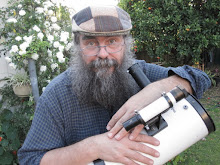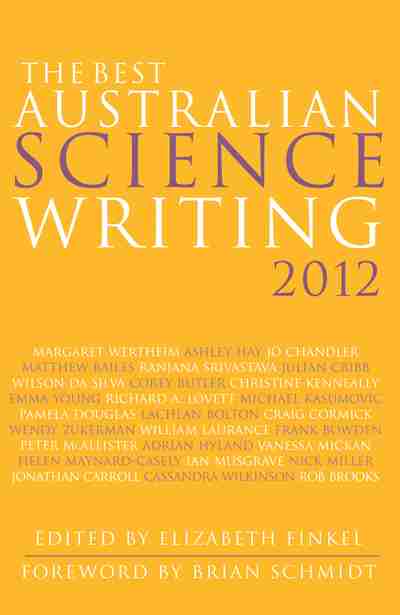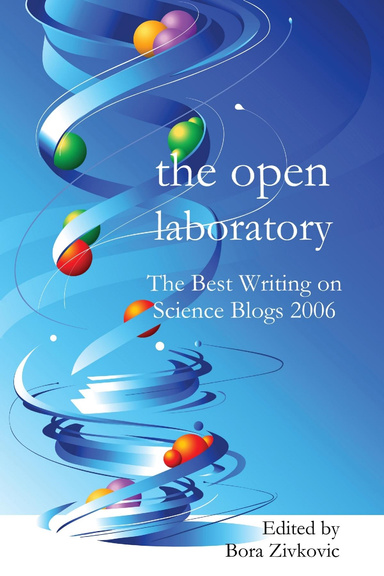Saturday, October 29, 2011
When an Eminent Historian Writes on the History of Science it Would be Nice ....
.. If he got it right. Yet in an article in The Australian today (Inquirer, Oct 29-30, page 18) Geoffrey Blainey is quoted as saying
If he had bothered to do any research, rather than buying into denialist myths, he would have found that most research was pointing to warming, and that warming was a long-standing prediction of physics (see also this article).
Blainey goes on to say:
Well, if it were true, that would because science has runs on the board in way that religion hasn't. From the eradication of small pox to landing people on the Moon, science has proved its credentials. Whenever you use your mobile phone, you are using the practical application of quantum mechanics and the theory of relativity. Religion ascribed epilepsy to demonic possession, a few Christian sects still do, with tragic consequences. But science is unravelling the causes of epilepsy and has developed effective treatments. So science has earned the benefit of doubt.
But in fact, science rarely is given the benefit of the doubt. From global warming, to tobacco and cancer, to acid rain, to heart transplants, to IVF, to the ozone hole, to collapse of fish stocks from overfishing politicians, entrenched interests and often religious leaders have fought tooth and nail against the scientific consensus, only relenting (sometimes) when scientists have been shown incontrovertibly, sometimes tragically, right. Between The Australians War on Science and members of the Catholic Church spreading misinformation on condoms and AIDS, it's obvious that science isn't being given the benefit of the doubt and is being actively opposed.
Blainey has written some wonderful history, his "Tyranny of Distance" was a seminal work of Australian history, it's a pity his comments on science are fantasy.
"In 1970 the overwhelming majority of scientists believed that there was not going to be going to be global warming over the next 40 years..."
If he had bothered to do any research, rather than buying into denialist myths, he would have found that most research was pointing to warming, and that warming was a long-standing prediction of physics (see also this article).
Blainey goes on to say:
"The interesting thing to me about science is that it's given the benefit of of the doubt in ways that Christianity used to be given the benefit of the doubt."
Well, if it were true, that would because science has runs on the board in way that religion hasn't. From the eradication of small pox to landing people on the Moon, science has proved its credentials. Whenever you use your mobile phone, you are using the practical application of quantum mechanics and the theory of relativity. Religion ascribed epilepsy to demonic possession, a few Christian sects still do, with tragic consequences. But science is unravelling the causes of epilepsy and has developed effective treatments. So science has earned the benefit of doubt.
But in fact, science rarely is given the benefit of the doubt. From global warming, to tobacco and cancer, to acid rain, to heart transplants, to IVF, to the ozone hole, to collapse of fish stocks from overfishing politicians, entrenched interests and often religious leaders have fought tooth and nail against the scientific consensus, only relenting (sometimes) when scientists have been shown incontrovertibly, sometimes tragically, right. Between The Australians War on Science and members of the Catholic Church spreading misinformation on condoms and AIDS, it's obvious that science isn't being given the benefit of the doubt and is being actively opposed.
Blainey has written some wonderful history, his "Tyranny of Distance" was a seminal work of Australian history, it's a pity his comments on science are fantasy.
UPDATE: Interesting discussion in the comments thread on Deltoid's article mentioning this one.
Labels: global warming sillyness, history, scepticism, science communicators
Comments:
<< Home
Blainey has been controversial in the past precisely because he has not always checked before writing, and he is writing in that organ of the conservative political parties, the Australian, which has done every everything credible, and some incredible things, to oppose the proper use of science.
Toby
Toby
A bit of digging would have found the report commissioned by the Whitlam Government after the very scary discussions about food security at the World Agriculture conferences in 1974. Not exactly the fringe statements in tabloid mags that this post would consider the cause of Professor Blaineys statement
The Australian government in 1975 set up a committee to investigate international predictions of global cooling. It was selected by the Australian Academy of Science, and four Fellows of the Royal Society were amongst the 11 members of the committee. It included some of the world's leading climate scientists. Its report of 92 pages was published in March 1976 under the title of "Report of a Committee on Climatic Change". It gives a clear outline of thinking on the problem as seen at that time. It cautiously shows the complexity of the topic. It concluded "In the present state of knowledge, it is not possible to make useful forecasts of future climatic trends".
The Australian government in 1975 set up a committee to investigate international predictions of global cooling. It was selected by the Australian Academy of Science, and four Fellows of the Royal Society were amongst the 11 members of the committee. It included some of the world's leading climate scientists. Its report of 92 pages was published in March 1976 under the title of "Report of a Committee on Climatic Change". It gives a clear outline of thinking on the problem as seen at that time. It cautiously shows the complexity of the topic. It concluded "In the present state of knowledge, it is not possible to make useful forecasts of future climatic trends".
Nice catch Anon. More interesting discussion on the history of global warming with timelines in the comments here
Post a Comment
<< Home





 Click to read about or order
Click to read about or order Click to read about or order
Click to read about or order Click to read about or order
Click to read about or order Click to read about or order
Click to read about or order




